Little Steps to Love Learning
We now know we are all learning throughout our life everyday. And our responsibility as caregivers is now is to teach our children that learning is core to their life too, forever not just in school, nursery or childcare.
Lives start to get busy from a such young age. And then as parents, caregivers and teachers we add to this with after-school activities, play groups, play dates, homework and extra-curricular activities.
Sometimes we wonder if we are really helping our future generation grow and develop into successful well-rounded leaders. Are we teaching them to appreciate a life of learning? Perhaps we should aim to provide them with a love of learning? Is this love of learning helping the children improve.
We just need our children to improve at 1% every day. Just 1%.
1% is all that’s needed
They say a relationship is built on frequent lightweight interactions. Just so, learning comes in small increments. After all, the effects of small improvements compound over time.
If you can get just 1 per cent better each day, you’ll end up with results that are 37 times better after one year.
James Clear talks about Continuous Improvement:
In the beginning, there is basically no difference between making a choice that is 1 percent better or 1 percent worse. (In other words, it won’t impact you very much today.) But as time goes on, these small improvements or declines compound and you suddenly find a very big gap between people who make slightly better decisions on a daily basis and those who don’t.
Children learn from play, they build life skills. Many see play based learning as frivolous and not enough is being taught. However with curious minds it allows children to experiment through play. Learning maths, science concepts and language with simple sand and water play, whilst building fine and gross motor skills.
Problem solving and decision making skills are the result learning from play . By motivating our young ones to be inquisitive, mess up and rebuild we help them build their confidence too.
It’s very hard as an adult not to step in. Try to encourage your little ones to be persistent, try again. But continuous improvement doesn’t happen by itself. Instead we must motivate our young ones to jump over hurdles.
Three ways we can help our children to love learning:
- Self motivation
A child learns through building and rebuilding with linking cubes or Rainbow Pebbles. There will be trials and tribulations where children will be learning through play making mistakes and resolutions. However they are learning so much from problem solving, cognitive development, persistence and a love of learning… all through play.
That moment where the child shows frustration because they have knocked down the tower is just before they learns they can rebuild it, even taller.
Empowerment to experiment in a safe place will instil a belief that persistence pays. And persistence is at the core of self motivation.
- Collective memories
Building memories that are formed as being part of a group helps children develop important social and emotional skills from taking turning, communication, sharing where learn from each other. It won’t always be smooth sailing and may have big emotions, however they are there to learn from each other.
A child can learn from others when working alongside their peers, but when they become able to explain how to sort the aquatic counters to another child, that’s when her real improvement starts to come to life in our eyes. In turn, perhaps that other child will start their journey of improvement too. Communication and language will improve along with social and emotional skills. These can be as simple as turn taking, sharing which are lifelong skills.
What’s more, different experiences will help children develop to adapt to people and to environments and a resilience to bounce back in new places.
- Communication and language
Your child’s head – and yours too – may still be spinning from the different activities they’ve done that day. However, we can ask them did they build a tall tower with cubes, climb a tree, build an obstacle course with the Step a Trails or play with their friends? See how they talk about their day.
This communication allows not only for memories to start to form, but also it creates a happy children that can describe their day, needs or even wants where the child has ideas of other ways to do a similar activity. The conversation progresses through practice and play.
Globally, our children need little opportunities to develop through play. Not to expect great change in any one day. Just 1% improvement is enough.
A fun learning journey happens in small increments. And let’s not forget, when it is fun children learn more. Yes, when it is fun, children love learning, little by little.
To read more play articles, download activity cards sign up to our monthly newsletter head over to https://edxeducation.com/teacher-parent/
Edx Education – Heather Welch
To find your local Edx Education retailer head over to Where to buy – Edx Education.

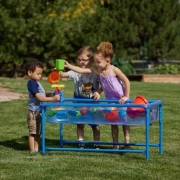
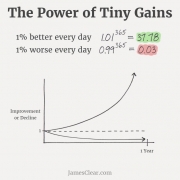
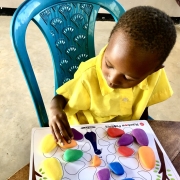
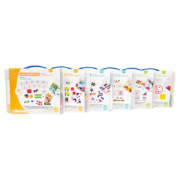 edx education
edx education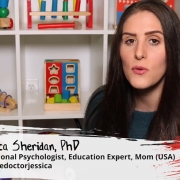 Edx Education
Edx Education edx education
edx education
 Edx Education
Edx Education
